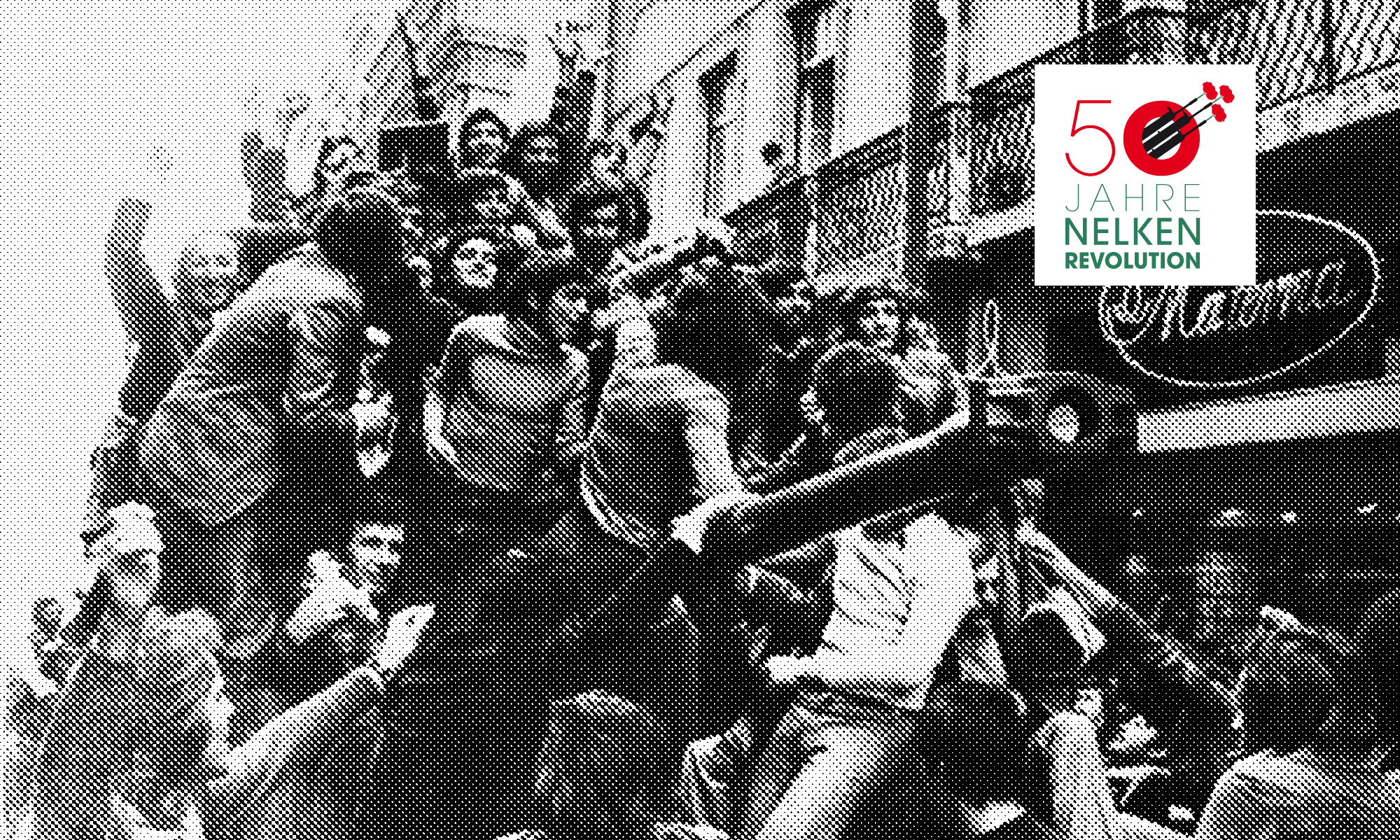The revolutionary dynamic was dampened by the elections to the constituent assembly on 25 April 1975 and the parliamentary elections in 1976. The clear winners were the opponents of the revolution. There were several reasons for this: The revolution barely got beyond the industrial belt of Lisbon and southern Portugal. In the conservative north, the influence of the anti-communist church and local reactionaries continued to dominate. Added to this were illiteracy, a lack of education and the desire for a level of consumption similar to that in Western Europe, which was greater than the fear of further exploitation.
All parties had publicly vowed to continue the revolutionary process. The right-wing social-democratic PPD and the reactionary CDS paid lip service to this, while the socialist PS did so somewhat more covertly. Social democratic and conservative forces also gained the upper hand in the MFA, government and military. The „legitimacy of the ballot box“ had replaced the „revolutionary legitimacy of the MFA and the masses of the people“, according to the left-wing historian Fernando Rosas.
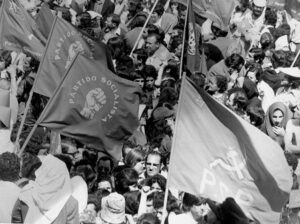
The days of joint marches by the communist PCP and the socialist PS were long gone – although a large proportion of the population had long favoured a left-wing bloc.
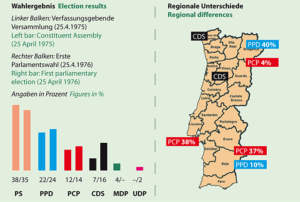
Voter background of the parties
PS – Partido Socialista: northern Portuguese labour force, urban middle classes, lower middle classes
PPD – Partido Popular Democrático: anti-communist middle classes, northern Portuguese farmers
PCP – Partido Communista Português: Lisbon industrial proletariat, rural proletariat of southern Portugal
CDS – Centro Democrático Social: large-scale agrarians, upper class, former Salazar supporters
MDP – Movimento Democrático Português: anti-fascist, democratic, close to the PCP
UDP – União Democrática Popular: Maoist students and radical left-wing workers
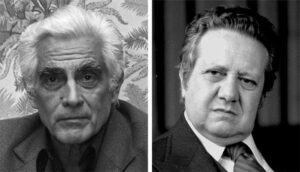
Left: Álvaro Cunhal, PCP General Secretary, long-term political prisoner, artist, communist realist.
Right: Mário Soares, chairman of the PS (founded in 1973 with the help of the SPD in West Germany), opponent of the revolution.
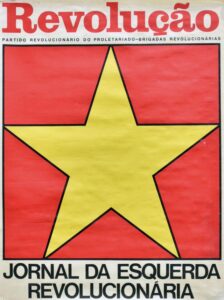
Radical left-wing groups and the military left wanted to push ahead with the revolution with Poder Popular (people’s power in company, neighbourhood and house groups), some even armed. Weekly newspaper of the PRP-BR (Partido Revolucionário do Proletariado – Brigadas Revolucionárias).
Images
Klaus Steiniger
TUBS, commons.wikimedia.org, Portugal,_administrative_divisions_-_de_-_colored.svg, CC BY-SA 3.0
Fernando Pereira / Anefo, commons.wikimedia.org, Alvaro_Cunhal_(1980).jpg, CC BY-SA 1.0
Claude Truong-Ngoc, commons.wikimedia.org, Mário_Soares_par_Claude_Truong-Ngoc_1978.png, CC BY-SA 3.0
Ephemera – Biblioteca e Arquivo de José Pacheco Pereira
ephemerajpp.com/2019/09/01/partido-revolucionario-do-proletariado-1975-2/
